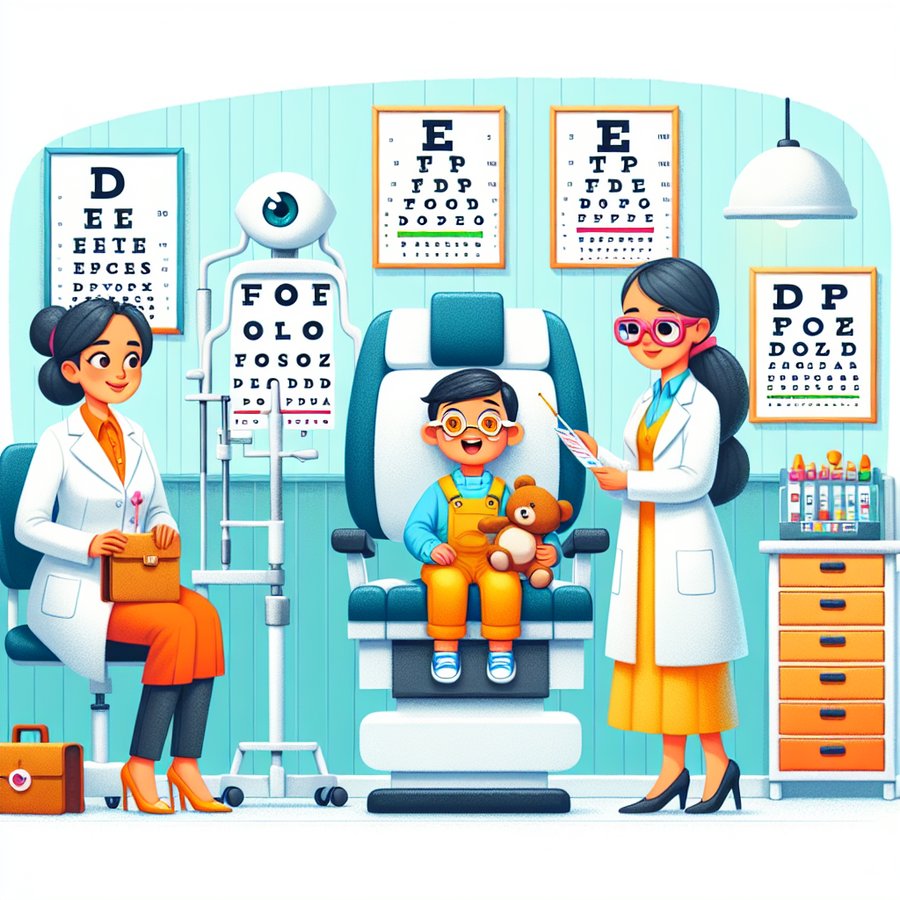The importance of pediatric eye exams in early childhood cannot be overstated. These exams are fundamental in ensuring the healthy development of a child’s vision, which plays a pivotal role in their overall growth and learning capabilities. Just as we prioritize regular check-ups for a child’s physical health, eye exams are equally crucial, yet they often do not receive the attention they deserve.
Understanding the Need for Early Eye Exams
Early childhood is a period of rapid physical and cognitive development, during which vision is a key sensory input. It’s during this time that issues such as lazy eye (amblyopia), crossed eyes (strabismus), or significant refractive errors can emerge. Detecting these issues early through pediatric eye exams can be crucial for effective treatment and avoiding long-term visual impairments.
Moreover, vision problems can often be mistaken for learning disabilities, as children with undiagnosed eyesight issues might struggle with reading, writing, or maintaining attention in class. This highlights the importance of pediatric eye exams in early childhood, not only for the child’s vision but for their overall academic and social development.
The Importance of Pediatric Eye Exams in Early Childhood
Regular pediatric eye exams do more than just assess vision acuity; they evaluate the overall health of the eye, including looking for signs of congenital issues or diseases that can affect vision in the long term. The American Optometric Association recommends that children should have their first comprehensive eye exam at 6 months of age, again at age 3, and just before they enter first grade — around age 5 or 6.
This early and regular screening can catch potentially vision-threatening conditions at a stage when they are most treatable. For instance, early detection of amblyopia can offer treatments that may fully correct vision, something that becomes significantly harder if the condition is identified later in life. This reiterates the importance of pediatric eye exams in early childhood as a preventive measure to safeguard a child’s vision and quality of life.
Integrating Eye Health into Overall Child Wellness
Eye health should be considered an integral part of a child’s overall wellness strategy. Besides scheduling regular pediatric eye exams, parents and caregivers can also ensure that children’s eyes are protected from excessive screen time, UV rays, and physical harm. Articles like Sun Protection Tips for Babies, offer valuable insights into protecting your child’s sensitive eyes from harmful UV exposure.
Additionally, understanding and addressing any signs of discomfort or difficulty in seeing can help in taking timely action. Resources such as Recognizing Signs of Developmental Delays and Recognizing and Responding to Signs of Developmental Delays provide parents with the knowledge to spot and react to any developmental issues that could be linked to vision problems.
In conclusion, the importance of pediatric eye exams in early childhood cannot be emphasized enough. These exams lay the foundation for healthy vision, enabling children to learn, explore, and engage with the world around them effectively. By incorporating regular eye checks into a child’s health routine, parents can ensure their child’s vision and overall development are on the right track.
Remember, early detection and intervention are key to addressing many vision-related issues, so make pediatric eye exams a priority for your child’s health and well-being. Explore more vital health tips and guidance at Baby Whys and Hows.













